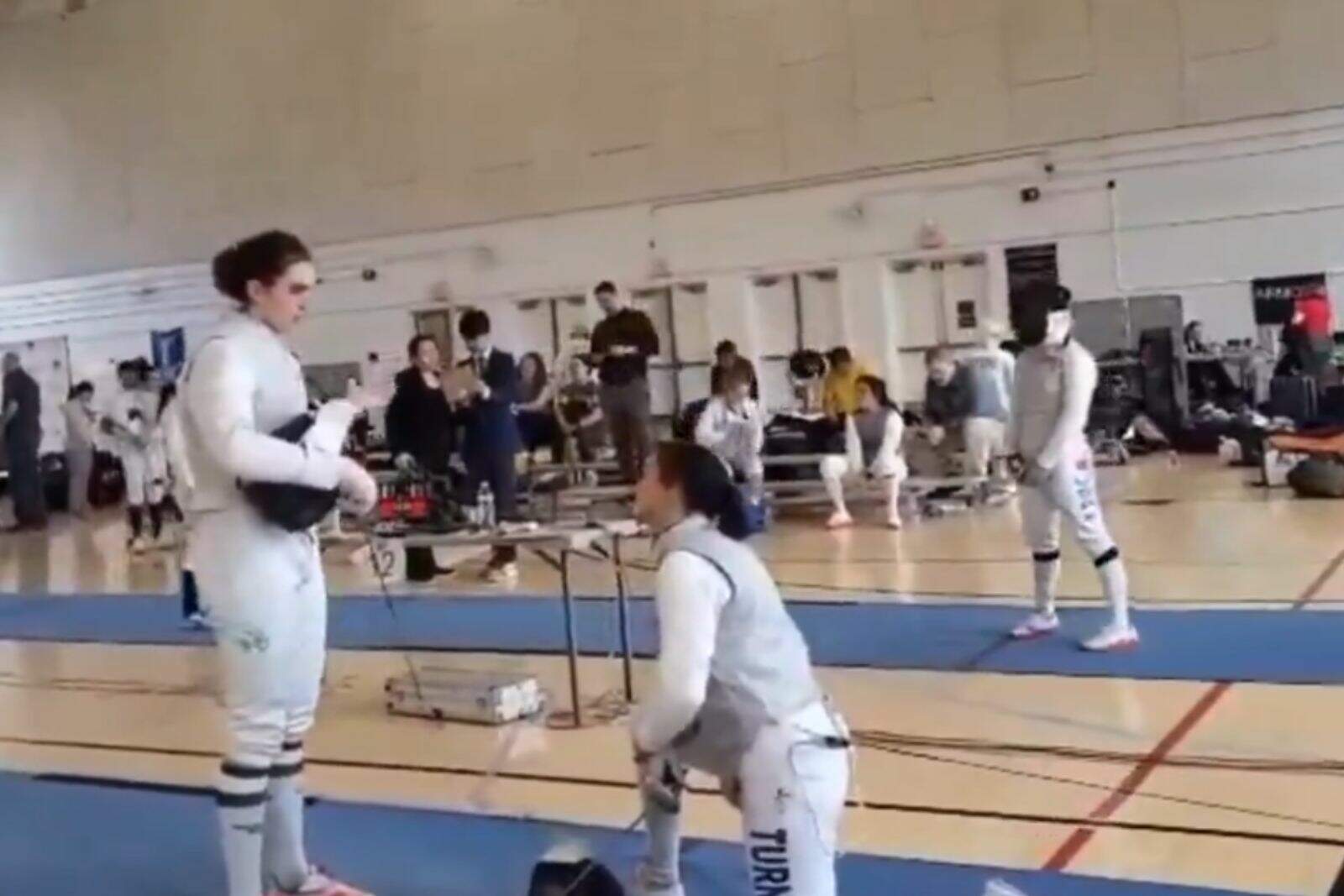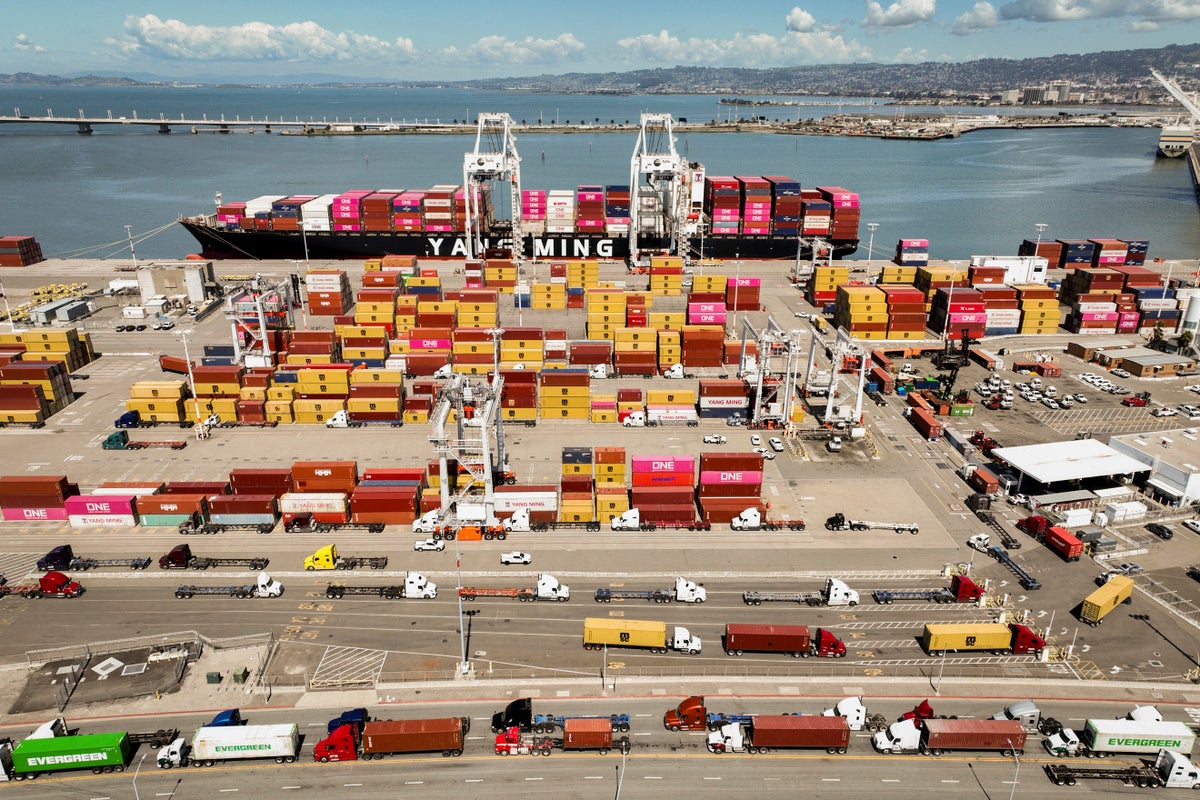California and a coalition of other states sued President Trump and his administration Thursday over his recent executive order purporting to radically reshape voting rules nationwide, including requiring voters to provide proof of citizenship, calling it an illegal attempt by the White House to strip states of their authority to govern elections. “My fellow attorneys general and I are taking him to court because this Executive Order is nothing but a blatantly illegal power grab and an attempt to disenfranchise voters,” California Atty. Gen.
Rob Bonta said in a statement. “Neither the Constitution nor Congress authorize the President’s attempted voting restrictions. We will not be bullied by him.

We will fight like hell in court to stop him.” Trump — who has falsely asserted that the 2020 presidential election was stolen from him — issued his “Preserving and Protecting the Integrity of American Elections” order on March 25. Several other groups, including prominent Democratic organizations and members of Congress and leading civil rights organizations, sued to block the order earlier this week.
The White House has dismissed the challenges as misguided, accusing Democrats of raising “insane objections” to “commonsense” election protections. Trump’s order casts the U.S.
voting system as wildly outdated and woefully behind systems in other nations, and calls for the adoption of a new slate of nationwide voting standards. It hinges in part on claims Trump has made for years — without evidence — that fraud is rampant in American elections and that voting by noncitizen immigrants is a major problem. If upheld by the courts, the order would require all voters in the U.
S. to show proof of U.S.
citizenship — such as a passport or REAL ID — before they can register to vote in any federal election. Trump has claimed such requirements would help to eliminate fraudulent voting by noncitizens. Voting rights advocates say the requirement would disenfranchise many American citizens who have the right to vote but do not have such documentation readily available.
Critics of Trump’s policy also point out that voting by noncitizens is extremely rare and already illegal in federal elections. Trump’s order also would require states to disregard mail ballots that are not received by election day. Some states currently have different rules, including California, which accepts ballots if they are postmarked by election day and received within a certain number of days.
Critics of California’s rules contend they are part of the reason California takes so long to count ballots and report results. California officials note that the state has tens of millions of voters, and say delays are due to the state’s diligence in making sure that every valid ballot counts. Trump’s order also would crack down on foreign nationals making political contributions, an issue that has come under fire from Republicans frustrated with major donations to liberal causes by Swiss billionaire Hansjörg Wyss, who lives in Wyoming.
California filed its lawsuit challenging Trump’s order alongside 18 other states in federal court in Massachusetts. Bonta’s office called the order “unconstitutional, antidemocratic, and un-American,” and said it will cause California and other states “imminent and irreparable harm.” “It bears emphasizing: the President has no power to do any of this,” the lawsuit states.
Bonta said the order was more evidence of Trump’s “utter disdain for the rule of law,” “Let me remind him: He is not a king,” Bonta said. “When he took office, he swore to ‘preserve, protect and defend the Constitution of the United States.’ He also has a constitutional obligation to ‘take care that the laws be faithfully executed,’ and that doesn’t involve rewriting them however he sees fit.
” California Secretary of State Shirley Weber, the state’s top elections official, called Trump’s order “an illegal attempt to trample on the states and Congress’s constitutional authority over elections.” “Throughout history, people have tried to make voting more difficult through oppressive means such as poll taxes, literacy tests, improper voter roll purges, strategic polling place closures, and voter intimidation tactics,” Weber said in statement released Thursday. “The progress this nation has made over the past 60 years since the passage of the Voters Rights Act cannot be minimized and should not be erased.
” The Constitution broadly empowers states to determine the “times, places and manner” for how elections are run. It also gives Congress the power to “make or alter” regulations surrounding federal elections. However, it does not spell out any role for the president.
Republicans accused President Biden of overstepping those bounds when he issued an executive order directing federal agencies to promote voting access in 2021 — which Trump has since rescinded. Democrats and other voting rights advocates have since accused Trump of overstepping those same bounds with his order. Several other groups have also sued over Trump’s order.
The Democratic National Committee sued Monday , joined by party leaders — including Senate Minority Leader Chuck Schumer (D-N.Y.) and House Minority Leader Hakeem Jeffries (D-N.
Y.) — and various other Democratic party organizations. Two separate lawsuits have been filed by voting and civil rights groups.
Major groups behind one of them — including the League of Women Voters, the NAACP and the American Civil Liberties Union — have argued the president “has no constitutional or statutory authority to unilaterally dictate how elections are run,” and that Trump’s order “is a blatant violation of the separation of powers.” The groups also accused Trump of spreading a “false and racialized narrative” and creating “unnecessary barriers to voter registration,” which they said could “disenfranchise millions of eligible voters, particularly voters of color, women voters, naturalized citizens, voters with disabilities, voters with low incomes, and first-time voters.” White House principal deputy press secretary Harrison Fields said in a statement that Democrats “continue to show their disdain for the Constitution and it continues to show in their insane objections to the President’s commonsense executive actions to require proof of U.
S. citizenship in an effort to protect the integrity of American elections.” Along with denying that he lost the 2020 presidential election, Trump was accused of committing crimes in pursuit of staying in power and pardoned violent supporters who stormed the U.
S. Capitol in 2021 to subvert those election results. Thursday’s lawsuit is the tenth that California has brought against the Trump administration since Trump’s January inauguration.
It was filed against Trump, U.S. Atty.
Gen. Pam Bondi, the U.S.
Election Assistance Commission and other Trump administration officials. Bonta is leading the effort alongside Nevada Atty. Gen.
Aaron Ford, his office said. The other states joining the litigation are Arizona, Colorado, Connecticut, Delaware, Hawaii, Illinois, Maine, Massachusetts, Maryland, Michigan, Minnesota, New Jersey, New Mexico, New York, Rhode Island, Vermont, and Wisconsin. Times staff writer Andrea Castillo contributed to this report.
.
Politics

California, other states sue Trump administration to block order on voting overhaul

California and a coalition of other states sued President Trump Thursday over his recent order purporting to radically reshape voting rules nationwide, calling it an "illegal power grab."















